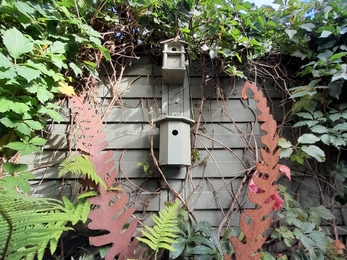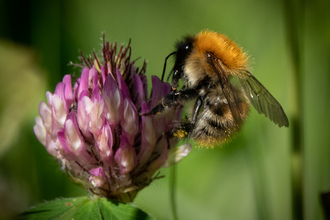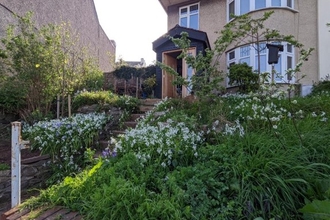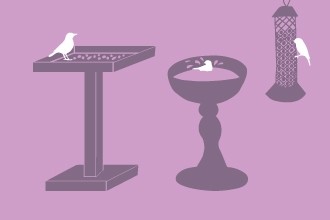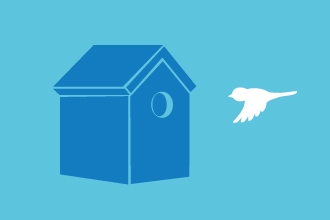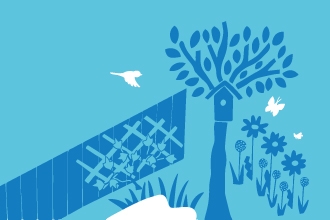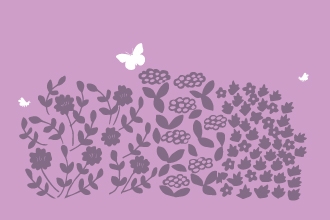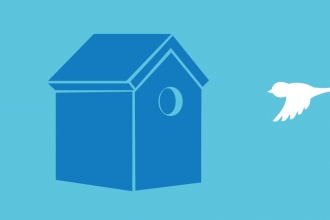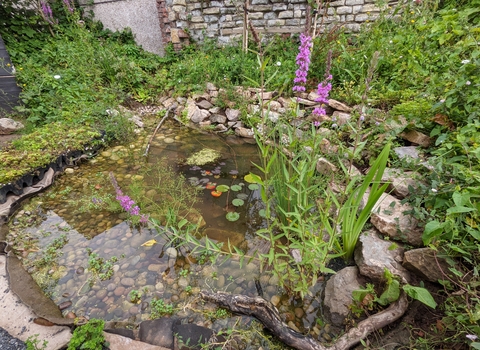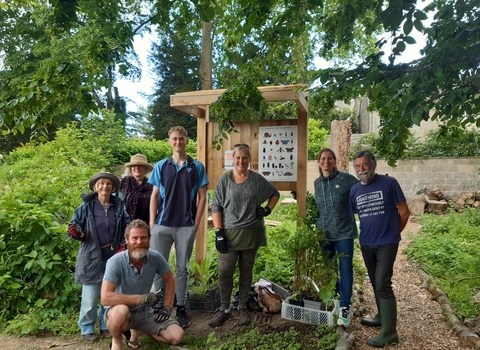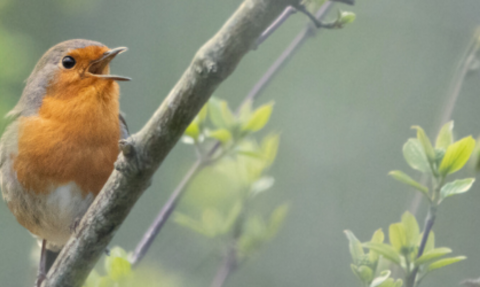
(c) George Cook
Team Wilder Birds
Feeding the birds
Attracting birds to your garden and local spaces is easy. See tried and tested local advice to encourage birds in Avon. It's important to keep feeders and tables clean, so the birds stay healthy and disease-free. There is a link about bird flu at the bottom of this page - it is ok to help birds if you follow the advice.
It's also ok to feed birds if cats are present, just position your feeders in a relatively open area with cover nearby so that the birds feel safer. More read on for local advice below.
Straight seeds, seed mixes or husk-free seeds?
Straight seeds include black sunflower, niger, oil seed rape, peanuts, and red and white millet. Seed mixes attract a greater mix of bird species. Husk-free seeds has less mess to clear up (from the disregarded shells) and birds that can’t crack husks, such as blackbirds), can also eat the mix. Some husk-free mixes also contain other foods like dried mealworms and suet pellets.
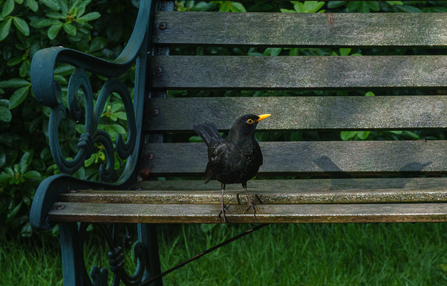
Stephanie Chadwick
Blackbirds love husk free seed mixes and dried or live mealworms, especially during the breeding and fledgling season in Spring. Blackbirds feed from ground or a bird table.
Suet or fat balls for the birds in winter
Stephanie in BS9 puts out suet or fat balls in the winter. They come as blocks, balls and pellets. Lots of birds like suet and it provides a vital source of energy for them, especially in the winter months.
Lots of birds love mealworms

Stephanie Chadwick
Dried or live mealworms are brilliant food to provide in the breeding and fledgling season.
I find that mealworms (dried) are really the most popular thing with all the birds, but the starlings in particular can eat a whole feeder in about half an hour. I have tried live mealworms but they escaped in the garage where I keep the bird food which was quite entertaining!
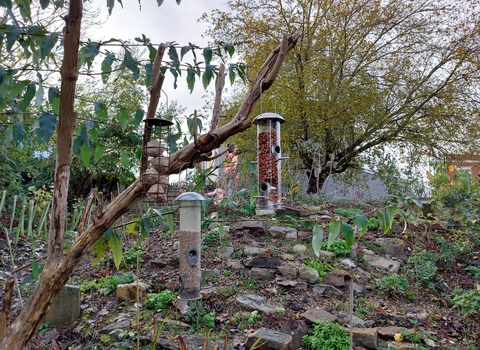
Sophie Bancroft of Friends Of Arnos Vale Crematorium
How to attract birds in our garden or local green space
Feed the birds throughout the year.
Bird feeding advice, plus make your own bird feeder
Provide water at various levels for drinking and a bird bath.
How to provide water for wildlife
Provide shelter in your garden via bushes or trees - spikey native bushes and hedges with berries are best.
How to provide bushes for nesting birds
Different sized holes in bird boxes attract different birds.
How to build a bird box
Have a wildlife friendly garden or outdoor space to help insects thrive, providing great food for the birds.
Start a wildlife garden
Don't deadhead to feed the birds
TIP: Rhiannon and her family in BS15 don't deadhead some plants where the birds feed, such as teasels, so that birds like goldfinches will come down for the seed heads in autumn and winter.
But what if cats are around?

Richard Burkmarr
It's ok to have a cat and still encourage birds! Just keep the bird boxes high up. Try to view the garden from a birds point of view in terms of safe places to hide before getting food or water. Bird boxes are also more likely to have inhabitants if near a covered area. Tom also added spikey bush trimmings around the base of the food containers to discourage cats as well. They will always be there, so don’t let cats be a reason not to introduce wildlife to your garden or outdoor space.
Rats and mice are not usually mentioned...
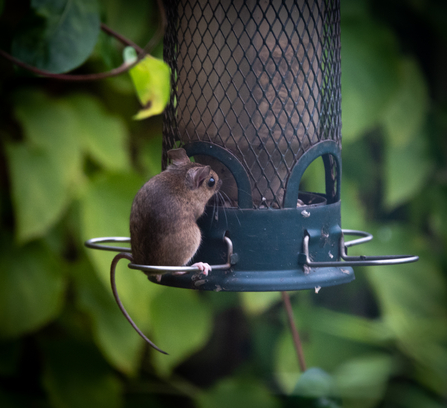
Stephanie Chadwick
We like to give a realistic view about taking action for nature, including the challenges and issues faced to give people an honest account of what can happen. The thing that no one speaks about, is that having birdfeeders tends to attract rats and mice. This bird feeder is hung from Stephanie's apple tree and attracts dormice and birds!
Having a wild patch is great for all wildlife

Melanie Doherty
Melanie and her family in BS15 have a very wildlife friendly garden and actively attract birds to their outdoor space. Red Campion, pictured above, is not only a great pollinator, but also provides nice cover and insects around the bird feeders. For the birds to feel safe using the bird feeders, Melanie has placed them close to natural green cover - but not too close for predators to take advantage. Native hedges and trees provide shelter, food and space for nesting and breeding.
Urban garden in Bristol

Sophie Bancroft of St George in Bloom
Grenville has many wildlife tips and advice for attracting birds to his BS5 urban garden:
- A variety of bird feeders are on display.
- Water is provided at different levels, with green cover nearby for birds to feel safe and protected.
- Bird boxes with different sized holes attract different birds.
- Rowan trees in the street provide shelter and food for birds, as well as regulating the temperature and looking beautiful for the residents.
Jenny in Knowle, BS4 loves feeding and attracting the birds as shown on the video below.
Advice from Tom in BS3
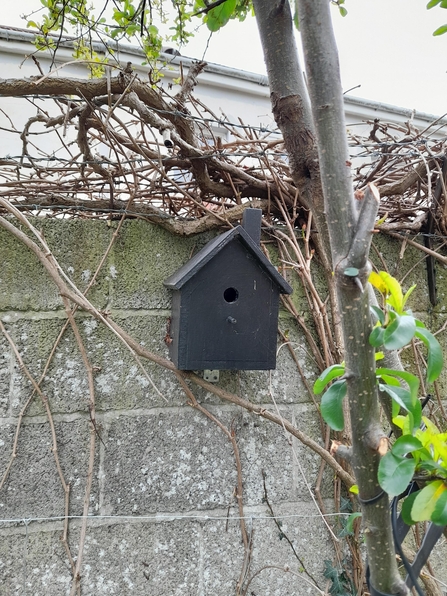
Sophie Bancroft Bird Box Tom Wilmott
To attract birds to their garden, Tom has installed a few birdboxes, including a swift box high up out of reach of neighbourhood cats. Spikey hedges, such as pyracantha, has also been incorporated into their design to add more cover for their feathered friends.
ADVICE: Incorporate as much cover as possible. Pyracantha are great for nesting and food supplies.
Resources
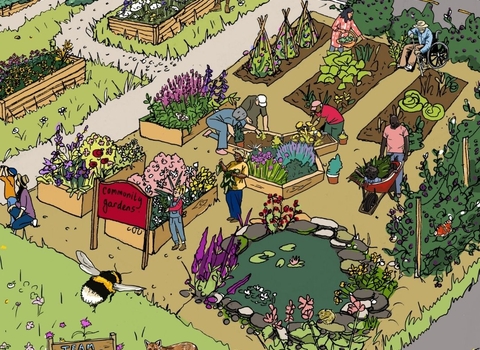
(C) Hannah Bunn
Be part of Team Wilder
All actions for nature collectively add up and creates life for people and wildlife.
Share your actions for nature, like Tom by sharing and tagging @avonwt on social media and
Log your actions for nature on the map





